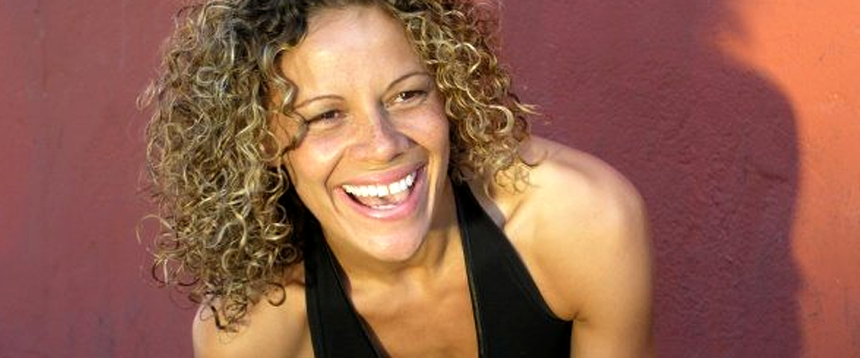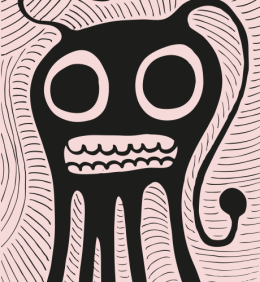Tea and Sympathy With Billie Myers

Billie Myers has quite the voice and quite the story…
It was just another day in LA for British native, Billie Myers; trying to jump start a diet, she was lying on a colonic table, when her mobile phone rang. She was informed that Universal Records had dropped her.
This was just the start of a few turbulent years that saw Billie diagnosed with depression.
But she’s back with a new album, a new label and being unapologetically Billie.
It’s been quite openly documented that the music industry is a hard slog. You were dropped by your label, what was that like?
I can say it was the best experience of my life!
When you’ve been given the opportunity to do the things you love most – singing and performing on stage – and then have that all taken away – it’s difficult to deal with.
Having said that though when I think back now, I can’t say it was truly a happy time in my life… I definitely struggled with low self-esteem issues about whether I was good enough, so in a bizarre way it did end up turning out to be something of a self-fulfilling prophecy when it was taken away!
But with that said, I was extraordinarily fortunate to be signed by Universal records. They were fantastic and never tried to change me or censor what I said in the press…
At the end of the day music is ‘a business’ and it just so happened that at that time the genre of female-singer-songwriter had run its cyclical course.
How did that affect your creativity and the drive to create music?
Initially it didn’t as I was naive enough to believe that I would be re-signed without understanding the nature of the record industry.
However, ultimately it did affect my creativity because I lost my self-belief and confidence which is a very difficult place to be, especially since being a singer-songwriter was how I defined myself.
You’ve been quite open about depression, do you think there’s still a stigma around the illness?
Without a doubt.
We live in a world where people think “lazy” or “crazy” before they think depressed.
As a result, it’s very hard to get help and it’s equally difficult to talk about it, without judgement; those are two incredibly big obstacles.
The effect of stigma is incredibly dangerous as it ultimately prevents people getting treatment.
I think it takes a lot of courage when you’re living with depression to talk about it and I find it incredibly sad that today there is still so much negatively surrounding those who speak out.
Take, The Only Way Is Essex’s Maria Fowler, talking the brave decision to publicly talk about her recent suicide attempt and depression. It took a lot for her to speak out, especially so early on in her recovery, and speaks volumes about the stigma around mental health there was such a backlash on Twitter when she did.
If she had revealed that she had cancer everyone would have been sympathetic about it.
Depression wears the face of ordinary.
It is not Jack Nicholson in The Shining.
People hear mental illness and automatically jump to a school shooting without realising that one in four people will have depression. This means that your mother, sister, father, son, boyfriend, girlfriend will be at some point likely be touched by it.
It is the proverbial elephant in the room that no-one wants to speak about. Simply because, because you can’t see it, qualify it, or the science surrounding it remains vague doesn’t mean it doesn’t exist…
When was the last time you saw toothache?
What prompted you for a come back? Did you have a defining moment?
There was not a defining moment as such. Good friends being supportive, and to some point being downright annoying about not giving up definitely played a large part. At some point that finally got through and my enthusiasm for writing was resuscitated. Doing an album seemed like a natural, logical extension.
You’re very honest and raw in your new album – does that make you re-live those moments?
You have to be able to relieve them to be able to deliver them in a way that’s authentic and believable, but that’s not necessarily a bad thing. I need to be able to access those feelings to perform them.
For me, 80% of a song is how you interpret and convey a lyric …
Is it believable is authentic?
If I can’t lock into that no one is going to relate to it on any emotional level.
Do you become immune to those feelings the more you sing? Or is it just as difficult as before?
You don’t become immune to them, but sometimes with distance the anger or angst or sadness you may have felt initially naturally dissipates, into acceptance or gets coloured by maturity!!
For example, I’m not in the same place now, as when I wrote “Kiss The Rain” but when I sing it, it doesn’t mean I can’t access where I was at that time.
I’m a great believer in immersing yourself in the performance.
To me singing is like acting, you have to be in the moment whatever it is.. whether it’s sexy, whether it’s heartbreak, whether it’s angst or happiness… not that I do too many on the happiness side of things.
Read Part 2 of our interview with Billie Myers…
Mariella Mejia; works at GaydarGirls and is always on the lookout for great content, inspiring stories and restaurant recommendations – she can’t help herself.










1 Pings/Trackbacks for "Tea and Sympathy With Billie Myers"
[…] second part of our tea and chat with Billie […]